Introduction
Vertigo is not a disease it is a symptom of vestibular dysfunction and can be explained as the sensation of motion.it is a condition in which the patient feels objects are going round and round, though the patient is stable and not moving, other symptoms which accompany vertigo are nausea, vomiting, sweating, and difficulty in walking.
Understanding Vertigo
Vertigo can stem from various inner ear problems or other underlying health conditions. Inner ear issues such as Meniere’s disease, vestibular neuritis, labyrinthitis, and benign paroxysmal vertigo (BPPV) can disrupt balance and trigger vertigo episodes. Additionally, factors like head or neck injuries, medication side effects, infections, and neurological disorders can contribute to vertigo.

Causes of Vertigo
There are two main causes of vertigo
1) Inner ear problems due to which a person's balance gets affected include-
- Meniere’s Disease
This disease causes saturation of fluid in the inner ear that can result in vertigo, a typical type of dizziness in which you feel as if you're moving, the sensation of spinning, loss of hearing, ear pressure, and ear ringing (tinnitus). Vertigo sometimes causes severe nausea and imbalance. Hearing loss may become permanent. The duration of vertigo can last for several hours.
- Migraine
It is a type of headache that can cause severe throbbing pain or a pulsing sensation in the head, basically on one side of the head .Vertigo due to migraine can last minutes to hours.
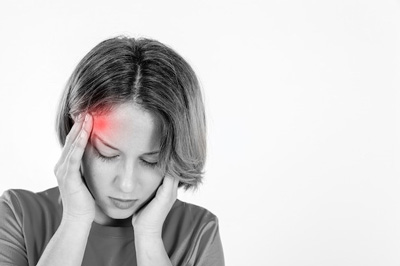
- (BPPV)Benign Paroxysmal Vertigo
This vertigo is because of specific head movements like a blow to the head which creates an intense sense that you’re spinning or moving.

- Vestibular Neuritis
- This problem is because of infection, usually viral infection and it is related to the inner ear. Due to infection, there is inflammation in the inner ear, around nerves (vestibular nerve) that are important for helping the body sense balance and imbalance.
- Labyrinthitis-An inner ear infection caused by a cold or flu virus
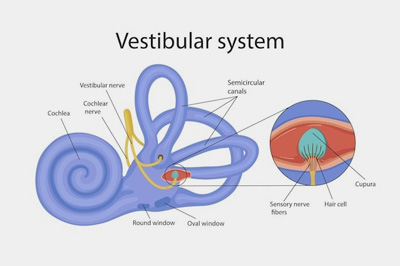
- Medications
Certain medications can cause and have side effect as vertigo, along with other symptoms like dizziness, hearing loss, tinnitus, or a ringing in the ears
2) Other Causes
- Injury to Head or Neck: Vertigo is a common symptom after a traumatic injury to the head or neck, especially if there is damage to the vestibular system.
- Brains: such as stroke or tumour.
- Some medications that cause ear damage
- Ear and inner ear surgery
- fistula in the ear, due to a break in the membrane that connects the middle ear to the inner ear due to which inner ear fluid leaks into the middle ear.
- Viral infections like Shingles and herpes zoster in or around the ear.
- Ear problems such as otosclerosis, where a middle ear bone growth problem causes hearing loss
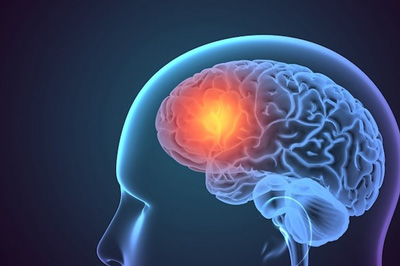
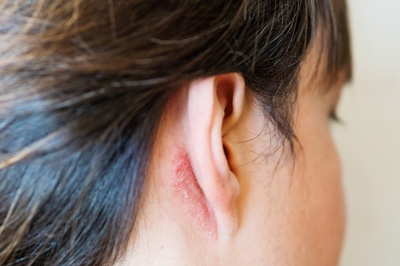
- Syphilis condition
- Muscle weakness
- A stroke
- Cerebellar or brainstem disease
- Condition acoustic neuroma which is a benign growth that develops on the vestibulocochlear nerve near the inner ear
- Multiple sclerosis also causes vertigo
Symptoms of Vertigo
Vertigo is a symptom, but it can also lead to other symptoms like
- A person having vertigo feels as if their head or the surrounding them is spinning or moving.
- Problems in balancing like spinning
- The heaviness of the head with headaches
- The feeling of motion sickness
- The sensation of nausea and vomiting
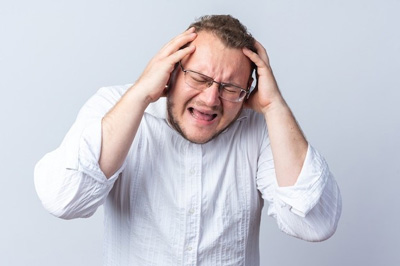

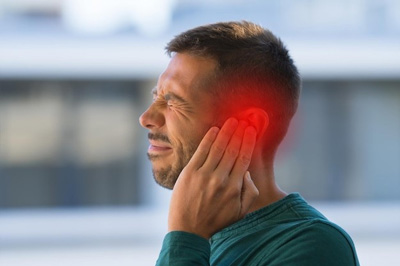
- Tinnitus-ringing in the ear
- A full feeling in the ear
- Abnormal, uncontrolled, jerky eye movement known as nystagmus, usually from side to side
- Tilting like pulled in one direction
- Symptoms can last a few minutes to a few hours or more and sometimes may come and go.
Homoeopathy and Vertigo
Homoeopathy offers personalised treatment approaches aimed at addressing the underlying causes of vertigo and alleviating associated symptoms. Through gentle and natural remedies, homoeopathy seeks to restore balance to the body's vital force and promote overall well-being.
Homoeopathic medicine for Vertigo
- Cocculus Indicus
- It is given when there is vertigo with a feeling of nausea and vomiting.
- Vertigo resulting from cervical spondylitis
- Travelling during, motion sicknesses like sitting or riding in a moving car or any other vehicle nausea and vomiting with vertigo this medicine works best
- Conium
- Work well in elderly people suffering from vertigo.
- Vertigo from lying down, turning sidewise, or during movement of eyes.
- Vertigo from motion in bed
- Motion of the head side either right or left causes vertigo conium is indicated
- Perspiration during vertigo
- Pulsatilla
- Effective remedy for women suffering from vertigo.
- Vertigo is related to or increased by suppressed or delayed menses.
- Vertigo is better by open fresh air.
- It can help prevent the feeling of moving objects and also stops nausea from occurring because of the condition.
- Pulsatilla is the top most natural medicine for Vertigo with ear troubles.
- Pulsatilla is the best remedy if you have vertigo where the ear loses its function or any other condition related to the ear
- The discharges from the ear are thick and yellow coloured
- Gelsemium
- Severe dizziness with dim vision and heaviness of eyelids with difficulty in walking with a loss of balance
- it is very effective when vertigo starts from behind your head and spreads all over the head
- The heaviness of the head, especially over the eyes, is a marked symptom for selecting this particular medicine.
- There is some sort of visual disturbance like dim vision or analysing one object as two (diplopia) may accompany Vertigo.
- There is the complaint of loss of balance while walking, resulting in a tottering gait or staggering.
- Vertigo with thirstless
- Belladonna
- People tend to fall to the left side or backward.
- Vertigo can be accompanied by a headache which is better by pressure.
- Belladonna is very effective for Vertigo occurring in a person with Cervical spondylitis along with pain and stiffness in the cervical back.
- The Vertigo Stooping can bring on an episode of Vertigo.
- Headache is accompanied by vertigo, binding the head gives relief from the headache
- Bryonia
- Vertigo with the movement of the head or changing position and it improves when the head is in absolute rest. It can also be associated with nausea and vomiting
- It is a remedy that is effective in treating vertigo if it occurs from gastric conditions.
- Gastric vertigo comes with nausea which can also cause dizziness.
- It helps you treat vertigo as it gives quick relief after waking up in the morning.
- It treats discomfort resulting from vertigo when you try to change the sides while sleeping
- Vertigo with a white-coated tongue is a peculiarity of Bryonia Alba.
Benefits of Homoeopathic Treatment
- Individualised Care: Homoeopathy recognizes that each person is unique. A homoeopath will assess your symptoms, medical history, and lifestyle to prescribe a personalised treatment plan tailored to your needs.
- Gentle and Natural: Homoeopathic remedies are derived from natural substances and are known for their minimal side effects. They work in harmony with the body, promoting self-healing and overall well-being.
- Holistic Approach: Homoeopathy takes into account not only the physical symptoms but also the emotional and mental aspects of an individual. It aims to restore balance at all levels, providing comprehensive care.
- Long-Term Relief: By addressing the underlying causes of Ulcerative Colitis,homoeopathy strives to achieve long-term relief and improved quality of life.
Patient Review
Consulting a Homeopath
Individuals experiencing vertigo episodes can benefit from consulting a qualified homoeopath for personalised treatment. A Sanjivani homoeopath will conduct a thorough assessment, considering the individual's medical history, symptom presentation, and overall health status. By tailoring remedies to address the specific needs of the individual, a Sanjivani homoeopath aim to provide holistic support and long-term relief from vertigo symptoms.
Sanjivani Homeopathy Clinic USP
- No homoeopathy Dietary Restrictions:
Allows patients to enjoy foods like onion, garlic, and coffee, ensuring a stress-free treatment journey.
- 24/7 Online Consultations:
Enables convenient access to doctors with detailed counseling, history management, and follow-ups.
- Highly Skilled Team:
Experienced BHMS and MD doctors, supported by multilingual and professional staff.
- Patient-Centric Care:
Simplifies treatment with modern, adaptable solutions and clear communication.
Click Here for Detailed "Sanjivani USP"
FAQ's
- What is homoeopathy ?
Homoeopathy is a holistic science which belives in the law of Similia Similibus Curenter i.e Like Cures Like .It was discovered by Dr Samuel Christian Hahnemannn in 1796.
- Is there any side effects of homoeopathy?
As homoeopathic medicines are made from natural substances this medicines have no side effects and are completely safe to consume
- Is there any diet restriction to take homoeopathic medicines?
There are no diet restrictions for homoeopathic medicines. One should only avoid eating or drinking any liquid other than water at least 30 minutes before and after taking homoeopathic medicines.
Click Here for "Frequently Asked Questions."
Conclusion
Homoeopathy offers a holistic and individualised approach to managing vertigo, focusing on restoring balance to the body and mind. By addressing the underlying causes and alleviating associated symptoms, homoeopathic remedies can help individuals regain stability and improve their quality of life. Consulting a Sanjivani homoeopath can provide valuable guidance and support on the journey to overcoming vertigo and achieving optimal well-being.
Disclaimer : The information provided in this blog is for educational purposes only and should not be considered medical advice. Please consult with a qualified healthcare professional before starting any treatment for Vertigo or any other medical condition.


